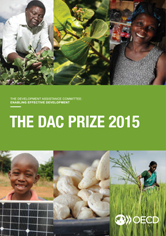Development
DAC Prize

Taking Development Innovation to Scale
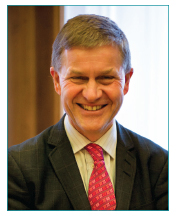 All great success stories have happened because someone had a goal and pulled people together to get it done. History has shown us that leadership is one of the most important drivers for development.
All great success stories have happened because someone had a goal and pulled people together to get it done. History has shown us that leadership is one of the most important drivers for development.
Despite the enormous progress made, many development gaps remain. The solutions that will close these gaps will also come from innovative ideas that can be taken to scale. In September 2015, presidents and prime ministers met at the United Nations, and agreed on the historic goal to end extreme poverty by 2030 and a new set of Sustainable Development Goals.
More innovative solutions will need to be taken to scale if we are to end poverty, green our economies and to make sure that all the children now going to school actually learn something! We need to look at what works, which innovations are important to focus on and bring to scale.
This is the objective of the DAC Prize for Taking Development Innovation to Scale. By the prize we recognise organisations who have taken an innovative approach, instrument or mechanism beyond the pilot phase to wider application. With the DAC Prize, the Development Assistance Committee and the OECD wish to acknowledge development actors who take this step: from supporting innovation, to using it systematically and strategically to address development challenges by taking it to scale. We hope that this will encourage a more systematic use of innovative development solutions that have already proven successful.
Fundamentally, this is about investing in what works, and encouraging more of it. The projects presented in on this website, finalists for the 2015 prize, demonstrate the value of innovative ideas.
They range from connecting farmers to the information they need about their plants and increasing the quality of their crops to giving access to green and affordable electricity, and much more.
- Erik Solheim, Chair of the OECD Development Assistance Committee (DAC)
|
Meet the winners and finalists of the 2015 DAC Prize: << View/Download
|
The winners of the DAC Prize 2015 are:
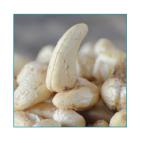 |
African Cashew Initiative By adopting innovative measures in five countries: Benin, Burkina Faso, Côte d’Ivoire, Ghana and Mozambique, The African Cashew Initiative has addressed the challenges in the cashew sector. They collaborate with both private and public sector partners, and have created a new innovative type of multi-stakeholder partnership in development cooperation. To accelerate the development of the cashew industry they gave also founded a Cashew Matching Grant Fund – which is a new public-private partnership model to leverage funds. |
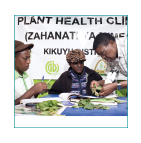 |
Plantwise Plant clinics are reinforced by the Plantwise knowledge bank, which contains a database with resources - pest photo sheets, technical factsheets, pest distribution maps, and guides to reducing risks from pesticides. |
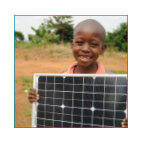 |
ReadyPay Solar Instead of requiring a customer to pay for a years’ worth of power up front, ReadyPay enables customers to purchase the system in micro-installments that fit their income. This flexible payment plan lowers the barrier to access clean energy for millions of people. With ReadyPay Solar, customers use their mobile phone to pay as little as USD 0.35 a day, less than their current energy costs, to finance solar panels, lights, radios and other life-changing appliances. |
Meet the other finalists of the DAC Prize 2015: |
|
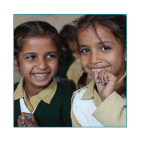 |
The Citizens Foundation By building schools within walking distance of the intended beneficiaries, hiring local females as teachers, providing teachers free transportation facilities and investing in intensive teacher training, The Citizen Foundation has been able to retain female teachers and students. |
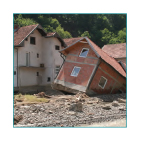 |
Europa RE Europa Re addresses the risks from natural disasters by developing a private insurance market for catastrophic risks. This includes both the development of innovative insurance products for local insurers and the provision of reinsurance capacity. Europa Re benefits clients such as homeowners in Central Serbia who can now insure their property against flooding and earthquakes for an affordable annual premium of around EUR 30. It also allows farmers in Western Macedonia to insure their wheat yields against losses due to climatic and biological perils. |
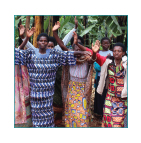 |
Farmer Field School: The field is the school and the plants are the teachers With the field is the school and the plants are the teachers programme, the Belgium development agency supports the Rwandan Government in its aim to introduce a training system that offers a practical and intensive learning opportunity to all Rwandan farmers. The farmers are taught in the field how to improve their farming and trained and coached to become themselves facilitators for other farmers. |
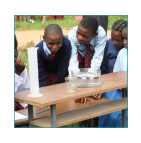 |
Lessons Study in Zambia In Zambia, more than 95% of all children enrol in primary school; however learning outcomes of pupils have not been sufficient. Lesson Study is an innovative approach that dramatically improves teaching skills by mutual learning among teachers themselves. Lesson Study is based on 140 years of history in Japanese schools and is increasingly used in East Asia, the United States and Europe. Teacher collaboration results in innovative ideas that change classroom practices from planning to delivering and reviewing lessons, eventually creating a new school culture of a“learning community”. |
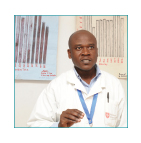 |
Safecare: A business case for improving healthcare quality for poor people in Kenya SafeCare connects and leverages the actions of all these partners: primary healthcare clinics become eligible to participate in the NHIF program, which creates more revenue and enables trust among stakeholders and patients. Kenya’s government uses SafeCare results for evidence-based health policies. Primary healthcare clinics develop their business potential, providing them with a more stable source of income. Local Kenyan banks expand their investment portfolio in the healthcare market based on more reliable standards of business. Most importantly, patients gain access to better quality healthcare. |
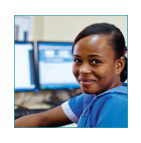 |
Telemedicine Project Providing medical services in remote and rural regions in poor countries is a key challenge for improved health outcomes. In areas like the Amansie West district in Ghana communities are separated by stretches of unpaved roads, often requiring four-wheel-drive vehicles to enable access. During the rainy season, it may take as long as seven hours to travel from the rural villages to the nearest referral hospital. Through its innovative use of information and communications technology, the Telemedicine project improves the access to and availability of healthcare services at the point-of-care by enhancing the referral system in rural areas, reducing unnecessary transportation resources and cost through a teleconsultation center, and expanding the reach of physicians to rural facilities. The project also aims to strengthen the triage process. Healthcare personnel are trained in the use of mobile technologies to perform 24-hour health consultations from a distance, while community health workers conduct home visits and follow-up appointments. |
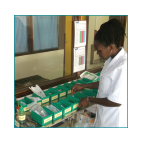 |
5S-Kaizen 5S-Kaizen is an approach to improve hospital management that builds on successful business models from Japan’s manufacturing industry. At its core, it is a team-based continuous problem solving activity to improve work processes that is simple, easy to do, and requires little additional costs: Work Improvement Teams at ward/department level, and Quality Improvement Teams at management level are set up, discuss problems and inefficiencies they face and try out solutions conceived by themselves. Employees can immediately see benefits. Confidence and motivation of employees are increased through experiencing small successes, realising they can be the agents for change, enhancing the sustainability of the approach. |
The DAC Prize becomes the OECD Award for Taking Development Innovation to Scale
We are pleased to announce that this year’s DAC Prize will be awarded jointly by the DAC and the OECD Network of Foundations Working for Development (NetFWD). NetFWD, which is a network of the OECD Development Centre, places major emphasis on scaling and impact. To reflect the broadening effort beyond the DAC, the Prize will become the “OECD Award for Taking Development Innovation to Scale” starting with the 2016 edition.
JURY
|
 |
Last Years Winner: Katalyst
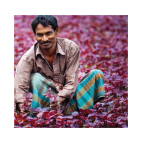 |
Katalyst from Bangladesh was the worthy winner of the DAC Prize 2014. The winner shows how very simple business ideas can have a big impact on people’s lives. The Katalyst concept is based on providing high-quality seeds in mini-packets to low-income farmers as a means of helping to increase their income. Over three seasons, the number of beneficiaries doubled and 14 million dollars’ worth of additional vegetables were produced. This success has encouraged more seed companies to introduce mini-packets. Katalyst is supported by the Swiss Agency for Development and Co-operation, the UK Department for International Development, the Danish International Development Agency, the German Federal Enterprise for International Cooperation (GIZ), the foundation Swisscontact and the Bangladesh Ministry of Commerce. |
What has happened since last year? The experiences from last year's winner and finalists.
The DAC Prize 2015 is awarded in partnership with the OECD Network of Foundations Working for Development (NetFWD) and Devex.
 |
 |
Related Documents
